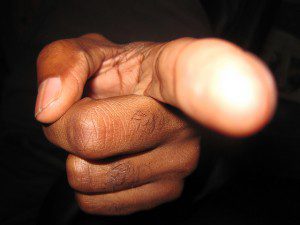Guest Writer for Wake Up World
‘Judgement’ is considered to be an uncompassionate behaviour in our society, however what this is truly referring to is the condemnation of people or their particular behaviours and values, based on our assessment of them.
Passing judgement on the world around us is a perfectly natural aspect of being human. We continually assess our environment and form opinions on whether we are safe, what response we should have and if we personally resonate with the energy of each given life circumstance.
Ironically we never arrive at an absolute truth either; all we can do is create the best possible estimate of how we think and feel about whatever we are examining.
[pro_ad_display_adzone id=”110028″]
Therefore, we all pass judgement – be it positive or negative, independent or comparative, realistic or unrealistic, selfless or selfish, contextual or divisive. Put another way, we continually critique the people and situations in our life, including ourselves, which is why the process we undertake can either be healthy or unhealthy for everybody involved.
Unpacking the Various Forms of Judgement
Let’s discuss an example to best illustrate what is meant by the above concepts. If we have someone in our life that is always gossiping and condemning others, there are many ways we could pass judgement on their behaviour.
A positive judgement would be something like“they might be highly hypocritical, but I also admire their strengths”, whilst a negative judgement might result with “the way that they act is disgusting and therefore I hate them”. Independent judgement takes ourselves out of the picture the best we can, such as “they obviously need help to evolve their mindset, so I hope they eventually get it”, whilst comparative judgement indicates a high personal input: “I would never treat people like that; therefore, I’m better than them”.
Realistic judgement would suggest that “their poor treatment of others might occur due to their lack of self-worth”, and unrealistic judgement would falsely assume that “they’re a bad person who was born like that”. Selfless judgement would be supportive, such as “one day I hope they realize the pain that they cause themselves and others” and selfish judgement might be revengeful, including “I want to cause them as much pain as they have caused others”.
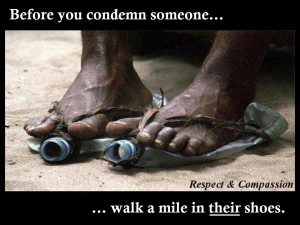 In addition, contextual judgement incorporates the bigger picture, such as “these sorts of behaviours usually stem from earlier trauma or attachment issues”. Divisive judgement on the other hand separates the behaviour from the complexity of the human condition, and would say “they’re behaviour shows how bad of a person they are”.
In addition, contextual judgement incorporates the bigger picture, such as “these sorts of behaviours usually stem from earlier trauma or attachment issues”. Divisive judgement on the other hand separates the behaviour from the complexity of the human condition, and would say “they’re behaviour shows how bad of a person they are”.
Once we work through a case scenario, it’s easy to see how we project our own psychological, emotional and philosophical development into the judgement that we make on other people and their behaviours. For example, anybody who has been involved with relationship conflict – i.e. everybody – has highly likely seen it escalate to an abusive level, such as verbal and emotional violence. Therefore, any condemnation towards people who are guilty of this behaviour is hypocritical because at one or more times in their past this has likely been their own reality.
Acknowledging the Developmental Path
Obviously the closer we get to other people, the more we know about them and the more we can develop a realistic judgement regarding who they are, including their actions. Nevertheless, we’ll never truly know, because it is still filtered through our own sense of truth and morality.
The reality is we have no idea what the truth of another person’s experience actually is. Attempting to understand this is called empathy, or the bid to connect with how they must feel with the circumstances they’ve had. It is therefore not only unrealistic to continually condemn people due to several of their actions; it’s also unhealthy because we plague ourselves with the dysfunction that accompanies a mindset that believes it is superior to others.
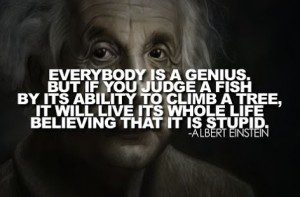 In addition, not all of us had supportive and loving upbringings or had opportunities provided to us that easily built up our knowledge and skills in certain areas. The truth is we’re not all dealt the same cards. Just because one person had circumstances which more effortlessly enabled the development of certain aspects of themselves, doesn’t mean that everybody had that same fortune.
In addition, not all of us had supportive and loving upbringings or had opportunities provided to us that easily built up our knowledge and skills in certain areas. The truth is we’re not all dealt the same cards. Just because one person had circumstances which more effortlessly enabled the development of certain aspects of themselves, doesn’t mean that everybody had that same fortune.
But even if another person had it rough and still learned to self-develop into a functional, healthy and consciously-advanced person, they weren’t always that way. We have all gone through revolutions in our thoughts, feelings and behaviours, so we should always appreciate others as being at their particular stage of their own unique path.
If we simply understand that we will always have plenty of ways that we need to develop ourselves, like everybody else, then we envision life as a journey of healing and growth, not as reaching a destination of an ideal self.
A Highly Developed Person Doesn’t Mean a ‘Better’ Person
It is highly important to emphasize this point: nobody is better than anyone else. Given we are all part of the unity of reality, we are all essentially equal. Of course some people are more highly developed in specific areas, but that doesn’t make them better people.
For example, one person might be highly intellectual in terms of their scientific understanding, whilst another might have vastly developed their emotional intelligence. Another individual might have a very conscious philosophical view of reality and another could have strongly developed their capacity to help others. Which person is the better person? Obviously, none of them; they all have their own degrees of development that they have evolved over the course of their lives so far.
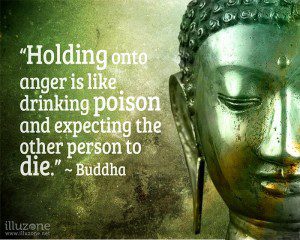 So if we’re continually condemning people or their actions, we inherently imply that we are better than them. This is a false sense of self-worth. If we have hinged a substantial portion of who we are in the condemnation of others, then not only are we condemning them, but we are encouraging self-harming behaviors to develop such as hatred, vanity, jealousy, resentment and intolerance. This is hurtful to not just others, but also ourselves too.
So if we’re continually condemning people or their actions, we inherently imply that we are better than them. This is a false sense of self-worth. If we have hinged a substantial portion of who we are in the condemnation of others, then not only are we condemning them, but we are encouraging self-harming behaviors to develop such as hatred, vanity, jealousy, resentment and intolerance. This is hurtful to not just others, but also ourselves too.
Why Judgement Can Be Unhealthy
Examples of self-harming judgement include: “they’re worthless”, “that behaviour is unforgivable”, “I hate them”, or “I’m better than them”. If this occurs we’re judging in a self-abusive way which brings negative and disharmonious vibrations to our own energy. We’re continually radiating negative and unhealthy emotional states as a result.
The key therefore is to judge in a healthy way, such as incorporating compassion and empathy. We should see the positive in others, even when they’re behaving negatively. For instance: yes, that person is behaving poorly, but for all we know they may have had something tragic happen to them today, or maybe they’re just at an underdeveloped stage of their growth, but one day hopefully they will have learned to overcome this behaviour which not only makes others suffer, but also themselves.
Once we take ourselves out of the judgement, then it is naturally healthier for everyone.
The Final Judgement
 Ultimately, our judgement is simply a projection of our conditioning, beliefs and values. Condemnation is obviously warranted in extreme cases of inhumane activity, but if we do it in general, it simply fills our minds with self-harming thoughts and emotions, and sacrifices the development of our understanding and connection with the people and the world around us.
Ultimately, our judgement is simply a projection of our conditioning, beliefs and values. Condemnation is obviously warranted in extreme cases of inhumane activity, but if we do it in general, it simply fills our minds with self-harming thoughts and emotions, and sacrifices the development of our understanding and connection with the people and the world around us.
In addition, even though it is practical for humans to judge on a superficial level, at the end of the day it’s still an illusory snapshot of eternity. No matter if someone is a stranger or best mate, when it comes to placing any permanent defining fixture on them, including the whole of reality itself, we close ourselves off to the infinite possibilities of our consciousness.
Previous articles by Phillip J. Watt:
- The Ego is the Source of Suffering AND Contentment
- The Orchestra of Reality – a Journey through Science, Spirituality & Symbolism
- 8 Emotional Patterns That Can Disturb Our Inner Peace
- 8 More Emotional Patterns That Can Disturb Our Inner Peace
- Finding Our Peace: The Art of Loving Our Experience
- A Day in the Life of Mindfulness
- The New Age of a United Global Culture
- A Guide to Unity: Transcending the Illusion of Disconnection
- Permaculture – What Is It and Why Is It Important?
- Matter vs. Spirit – A Guide to Participating in the Greatest Debate Ever
About the author:
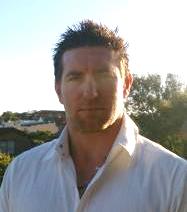 Phillip J. Watt lives in Sydney, Australia. He identifies as a ‘self-help guide’ as he has long focused on his physical, mental, emotional and spiritual health and then shares those lessons with his clients and readers. His written work also deals with topics from ideology to society, as well as self-development.
Phillip J. Watt lives in Sydney, Australia. He identifies as a ‘self-help guide’ as he has long focused on his physical, mental, emotional and spiritual health and then shares those lessons with his clients and readers. His written work also deals with topics from ideology to society, as well as self-development.
Phil has a degree in Social Science and Philosophy and has been trained extensively in health services. He assists adults, children and families as a mentor, relationship mediator and health and life teacher. He also provides online support services for personal healing and growth, assisting his clients to grow their skills and knowledge in life management and adventure.
Follow him on Facebook or visit his website www.vitalityguidance.com where you can reach him for a personal appointment.
[pro_ad_display_adzone id=”110027″]

